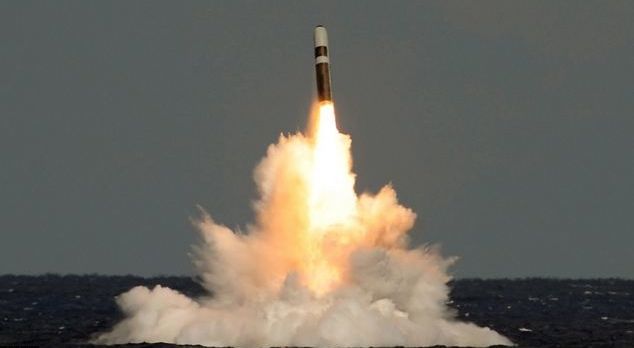Fading Solid Fuel Engine Biz Threatens Navy’s Trident Missile
http://breakingdefense.com/2014/06/fading-solid-fuel-engine-biz-threatens-navys-trident-missile/

Fading Solid Fuel Engine Biz Threatens Navy’s Trident Missile
By Sydney J. Freedberg Jr. on June 16, 2014 at 10:07 AM
CAPITOL HILL: “Failure to launch” isn’t a metaphorical concern when you work on nuclear weapons. That’s why the director of the Navy’s euphemistically named Strategic Systems Program (SSP) is a worried man. What has Vice Adm. Terry Benedict worried is something neither he, nor the Navy nor the entire Defense Department directly control. It’s the viability of what Benedict called “an already fragile industry” that produces the solid-fuel rocket boosters for the Navy’s Trident submarine-launched ballistic missile (SLBM). The worst part is that the solid fuel rocket engine business is an industry that will live or die not on the military’s own decisions, but on NASA’s.
“NASA is the large procurer in this whole equation, so what NASA does affects everyone,” from the Navy to the custodian of the nation’s spy satellites, the National Reconnaissance Organization, Benedict told me after the Peter Huessy Congressional Breakfast here. The retirement of the Space Shuttle already hit US rocket-motor manufacturers hard and raised prices for the industry’s remaining customers, including the Trident program. Yes, in theory you could import rocket boosters from abroad, but in practice the big seller is Russia, which is a problematic partner on rocket programs (and other things) right now. “I don’t think we’d ever procure Trident motors outside the United States,” Benedict said bluntly when I raised the prospect.
Next, in 2016, NASA will decide whether its new boosters will use liquid fuel, solid propellant, or a mix. If they go all or mostly liquid, that’s a potential death blow for domestic solid fuel manufacturing, and the Trident’s a solid-fuel missile. Even if the Navy could afford to design a replacement, it would still have to use solid propellant, because liquid rocket fuel is simply unsafe in the tight confines of a submarine.
That’s a unique Navy dilemma. In the Air Force ICBM program, for instance, “they do use liquids today in their upper stage,” Benedict told me. “Liquid (fuels) are a prohibited item on submarines.”
